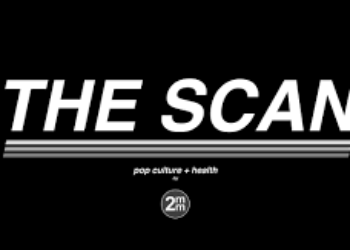Robust hepatitis B seroprotection in adolescence after immunization in infancy
Image: PD
1. Seroprotection after a challenge dose of hepatitis B (HB) vaccine was observed in 92% of adolescents (16-19 years) who had received the HB vaccine series as an infant.
2. Higher geometric mean anti-HB surface antigen antibody titers were seen after challenge with HB vaccine in adolescents whose infant vaccination series started at ≥4 weeks of age.
Evidence Rating Level: 2 (Good)
Study Rundown: The complete hepatitis B (HB) vaccine series given in childhood has been shown to provide protection against HB into adulthood. The duration of protection if administered in infancy is uncertain, however, particularly in areas with low endemic HB such as the United States. This study measured the level of protective antibody titers against HB virus before and after a vaccine challenge among adolescents who were vaccinated at or shortly after birth in Texas. It also evaluated the factors affecting anti-HB surface antigen antibody titers after HB vaccine challenge among patients whose HB vaccine series was initiated at < 7 days (group 1) or ≥ 4 weeks old (group 2). A higher proportion of adolescents in group 2 had protective antibody levels prior to HB vaccine challenge, but there was no difference between groups in the proportion of individuals who achieved a seroprotective response following HB challenge. Overall, 92% of patients mounted a protective response. This level of response suggests that a booster dose of HB vaccine in adolescence seems unnecessary. This study is limited in that it is only applicable to children who were vaccinated between 1991 and 1998, prior to the change in HB vaccine dose.
Click to read the study published today in Pediatrics
Relevant Reading: Antibody levels and protection after hepatitis B vaccine
In-Depth [prospective cohort study]: Participants included 420 adolescents aged 16 to 19 who had received the three dose HB vaccination series as infants. Baseline levels of anti-HB surface antigen antibody titers were measured, as well as the antibody response to HB vaccine challenge. 180 patients received the first of three HB vaccine doses at < 7 days old (group 1) and 240 patients received the first dose at ≥ 4 weeks of age (group 2). At baseline, 76% of patients had a non-protective titer of anti-HB surface antigen antibodies (< 10 IU/mL). Group 1 had a higher proportion of individuals with non-protective titers than group 2 (non-significant). Patients were then given a single challenge dose (10 or 20 μg) and their anti-HB surface antigen antibodies were measured two weeks later. 92% of study participants had a protective antibody titer in response to challenge, with no difference in rate of seroprotection between groups 1 and 2. Higher geometric mean antibody titers following vaccine challenge were seen in group 2 participants, in individuals who received the higher challenge dose, and in non-white patients.
More from this author: Seasonal increase in primary care visits for asthma, PCR associated with limited diagnostic utility in viral URI, Lower household income associated with higher pediatric inpatient costs, EHR useful for pediatric health insurance surveillance, Commercially purchased breast milk contaminated with pathogenic bacteria
©2012-2014 2minutemedicine.com. All rights reserved. No works may be reproduced without expressed written consent from 2minutemedicine.com. Disclaimer: We present factual information directly from peer reviewed medical journals. No post should be construed as medical advice and is not intended as such by the authors, editors, staff or by 2minutemedicine.com. PLEASE SEE A HEALTHCARE PROVIDER IN YOUR AREA IF YOU SEEK MEDICAL ADVICE OF ANY SORT.





![New drug for Chagas disease shows antitrypanosomal activity [CHAGASAZOL trial]](https://www.2minutemedicine.com/wp-content/uploads/2014/05/t-cruzi-75x75.jpg)
